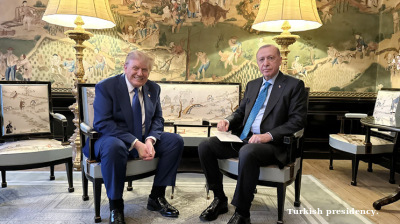A last-minute presidential decree citing national security concerns was on July 31 used to prevent the start of a mineworkers’ strike in Turkey. Signed by President Recep Tayyip Erdogan, it postponed the industrial action for 60 days.
Due to start on August 1, the industrial action was set to be the first of a series of staggered strikes mounted by 600,000 public sector workers over a government pay offer.
The IndustriALL global union warned: “Although officially labelled a ‘postponement’, this is in practice a strike ban. Under Turkish labour law, once the 60-day period expires without a resolution, the dispute is automatically referred to compulsory arbitration, a process that bypasses workers’ right to strike and imposes a binding settlement without further negotiation.”
“We stand in full solidarity with Turkish mineworkers in their rightful struggle for fair and legitimate demands,” said IndustriALL assistant general secretary Kemal Ozkan.
Ahead of the government’s move against the strike, international civil society alliance Civicus added Turkey to its “repressed” category on its watchlist, meaning fundamental rights such as freedom of expression, as well as the right to peaceful assembly and association, are viewed by the watchdog as seriously curtailed. Only countries classified as “closed” rank lower.
“Turkey is added to our watchlist as civic space faces existential threats due to the jailing of opposition politicians, the violent suppression of mass protests, and a dramatic escalation in censorship, arrests and intimidation,” said Civicus.
The mineworkers’ strike was to hit four boron mine facilities of state-owned Eti Maden.
Turkey has for years suffered from rampant inflation. The public sector workers have been negotiating for a new collective agreement with the state for over seven months.
The Confederation of Turkish Trade Unions (Turk-Is) rejected the government’s latest pay offer. It then announced that strikes could hit mines, highways, railways, power plants, ministries, universities and hospitals if no settlement was reached.
Turk-Is president Ergun Atalay criticised both the government and the Turkish Statistical Institute (TUIK, or TurkStat), saying workers no longer trust the official inflation data.
In Turkey, the lowest wage for public sector workers stands at around Turkish lira (TRY) 37,000 ($912) to TRY 38,000 per month.
Turk-Is data from July shows the monthly poverty threshold for a family of four in the country was TRY 86,036, while the hunger threshold—the minimum cost of food—was TRY 26,413.
The government’s final pay offer was for a 24% raise for the first half of 2025, 11% for the second half and 10% in the first half of 2026 as well as 6% in the second half.
In more than two decades of rule, Erdogan’s AKP party has imposed 22 strike bans, citing reasons including “national security,” “public health,” “economic and financial stability” and “disruption to urban public transportation services.”
News

Yemeni Houthis target Tel Aviv airport with hypersonic "Palestine-2" missile
The Yemeni Houthi armed forces targeted Ben Gurion Airport in Tel Aviv with a hypersonic "Palestine-2" missile, with the Israeli military saying the latest barrage was shot down.

Colombia's Álvaro Uribe sentenced to 12 years house arrest
Former Colombian President Álvaro Uribe Vélez was sentenced to 12 years house arrest for procedural fraud and bribery in criminal proceedings.

Trump orders nuclear submarine deployment amid escalating dispute with Russia's Medvedev
US President Donald Trump ordered the deployment of two nuclear submarines following an escalating social media confrontation with Russia's number two.

If Kyiv doesn't want to deal with Moscow yet, Russia can wait, Putin says
Russian President Vladimir Putin said Moscow is prepared to wait if Kyiv believes it is not yet time to engage in negotiations, stating that Russia can be patient regarding the settlement process in Ukraine.

_President_Ergun_Atalay__010825.jpg)


